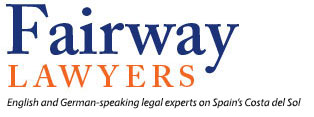Most of the properties purchased by foreigners are within flats, urbanisations or complexes subject to the Spanish law on communal property of buildings (“Ley de Propiedad Horizontal”).
Such law lays down the rights and obligations of the owners towards the community and also the control mechanisms which are usually available to owners and the community alike.
However, it is surprising the wide range of misunderstandings which arise among foreigners who purchase a property and find themselves all of a sudden with “hidden debts” and community decisions which are detrimental to their interests.
In many cases, most of these problems are due to lack of information or perhaps to lack of knowledge of the rights and obligations imposed by law.
As to the first point (“hidden debts”), the law makes the purchaser of a property liable for the vendor’s outstanding debts corresponding to the present year and the previous one, unless a certification stating that there are no debts, signed by the Community president and the Community secretary, is attached to the Purchase Deeds.
Consequently, the golden rule in this point is not relaying on the vendor’s usual statement that there are no debts, as you could find yourself in trouble if such statement was not true. Of course, the frustrated purchaser can request compensation from the vendor who made such false statement, but in order to achieve this goal he would have to go through court proceeding, and this can be difficult when the vendor is also a foreigner.
In addition, the new owner of a property is obliged to report the transfer of property rights to the Secretary of the Community.
Failure to comply with this obligation results in the joint liability for all the debts left by the previous owner.
Concerning the second point, the law establishes that all the owners have to be notified of the date, time and place for the Community Annual meeting with at least 6 days in advance. Any decision has to be notified as well in writing to all absent owners who did not attend the meeting, and the notification has to be sent to the owner’s common address in Spain in the first place, if he lives somewhere else and he has notified the community of such place of residence; if the owner has not done so, then the notification can be done on the very same property in the community, and the law establishes expressly that the notification made to the person occupying the premises (i.e. a tenant, etc) is rightly done and has full legal effect. If none of these were possible, the notification can be done through public exposition in the community noticeboard. There is no obligation to notify abroad.
It is important to take into account that the usual period to fight community decisions is three months, counted from the Community Meeting for those who attended and counted from the receipt of the notification for those who did not attend to it.
Many residents tend to think that the fact that the agreement is “illegal” or “unlawful”, or that they did not receive the invitation to the community meeting in due time, simply gives them right to ignore it, but this is not right: in the event the owner receives the notification, after three months it becomes definitive and it cannot be fought at court, except in some extraordinary cases.
Furthermore, in order to appeal at court the owner has to prove that he is up to date in the payment of community fees, or deposit the outstanding amount previously.
An example could be this: Mr. Smith, who does not live in the property, has not paid community fees within the last two years, and the Community takes the decision to sue him at court by claiming not only the outstanding debt of 2000,00 €, but also a penalty of 250,00 €. The community did not invite Mr. Smith to the meeting, but at least it tries to notify the decision through post; there is no one at the property, and then the notification is done in the noticeboard. The claim is submitted to Court three months after the notification takes place… what happens in such case? Firstly, Mr. Smith cannot fight the community decision as the three months period has already expired, and secondly, if he tried to, he would have to deposit the claimed debt previously. The fact that he was not invited to the meeting is not rendered as a default of his defence rights, since he received the notification and should have appealed against it.
Consequently, the golden rule in order to avoid unpleasant surprises is to give the community an address in Spain where you can effectively be made aware of the notifications, and in the event the agreement taken goes against your interests, to consider fighting it at Court within three months.

